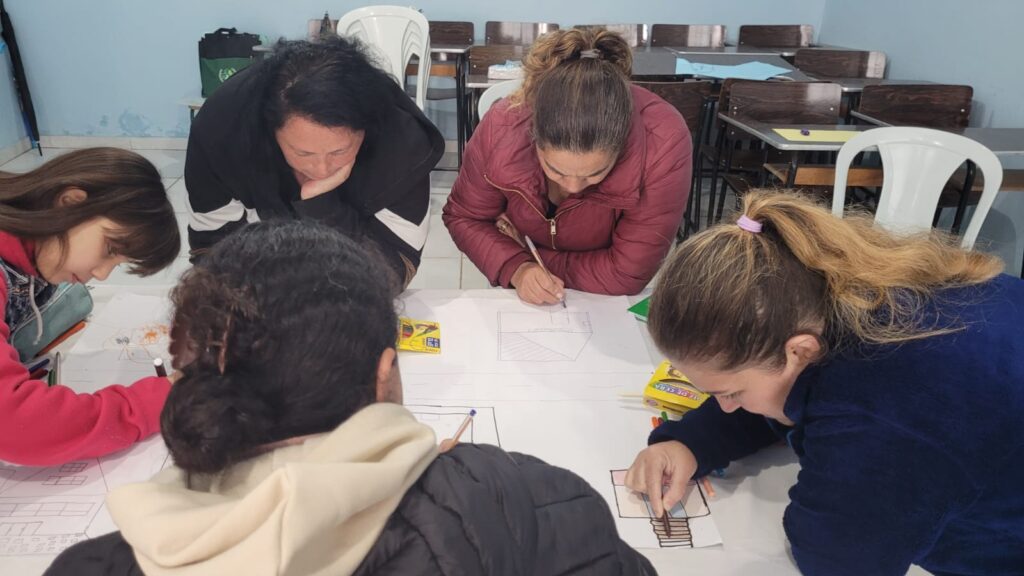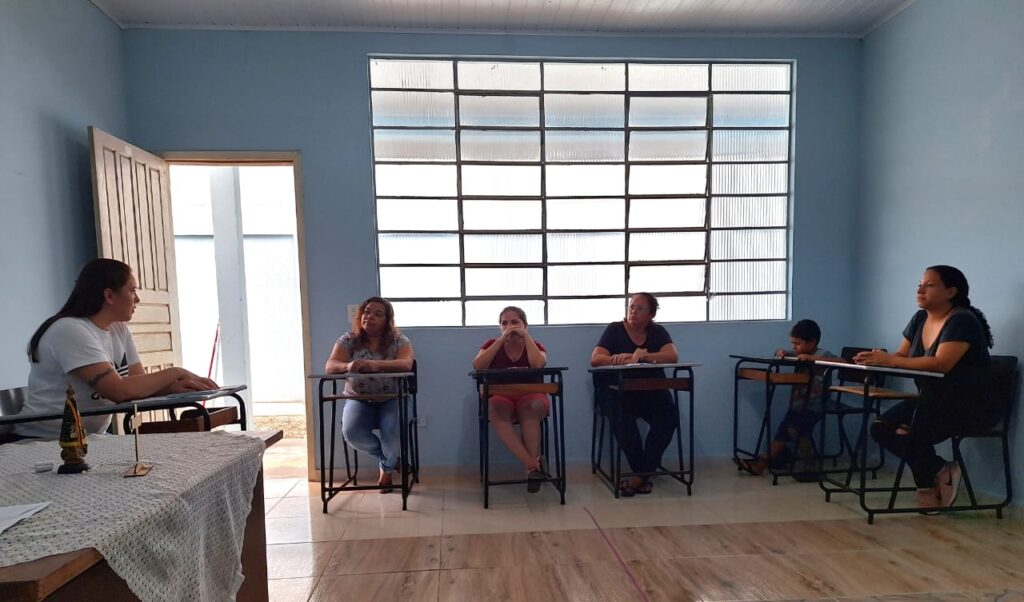In Brazil, the implementation of the Toolkit on Nurturing Values and Spirituality in Early Childhood has created a meaningful impact not only on parents, caregivers, and children but also on the trainers and facilitators involved. At Pastoral da Criança, the Toolkit has become a transformative force, reshaping the way the organization supports families and helping to break harmful cycles of violence by promoting the spiritual development of children.
Developed by the Consortium on Nurturing Values and Spirituality in Early Childhood for the Prevention of Violence, the Toolkit was adopted by Pastoral da Criança to foster a more compassionate and respectful environment in the families. Both facilitators and participants left the workshops feeling empowered to apply its principles in their daily interactions with children.
One such facilitator, Priscila do Rocio Costa, recalls with a bright smile the story of a mother who, after completing the sessions, was able to break the cycle of violence rooted in her own childhood trauma. Through discussions centered on children’s dignity and the importance of nurturing, respectful, and open communication, this mother experienced a profound shift in her understanding of discipline. “Before, she believed that to discipline her son or daughter, she needed to spank them, to hit them. That was her understanding based on her own childhood. So, over the course of the meetings, especially toward the end, she shared that she no longer spanked. She would take a breath, talk with her husband, call the children, and have conversations,” Priscila shared.
This change marked not only a new way of disciplining, but also a deeper understanding of herself as a parent. The Toolkit helped her break the intergenerational cycle of violence, adopting a more peaceful, empathetic way to address conflict and guide her children’s development.

Another mother had a similar experience. She was struggling with her youngest son, who frequently threw tantrums and acted out. Before the Toolkit, her response was often violent. The sessions, however, helped her reconnect with herself, not just as a mother, but as an individual. “The project came right during this phase of his, and it helped me a lot to get to know myself as a person, as a mother, and to know how to handle situations where I felt desperate or in conflict with him,” she explained.
Throughout the sessions, she gained the tools and skills to better navigate moments of desperation and conflict, learning to stay calm and reflect before reacting. Over time, both she and her son became more peaceful. Her journey demonstrates how the Toolkit not only transforms parenting practices but also has a direct impact on children’s emotional well-being.
Facilitators themselves also experienced personal and professional growth. Josete Valim, described how the training reshaped her interactions with the families she works with at Pastoral. She now feels more confident and better equipped to support mothers in navigating challenges with their children. The training helped her approach families with more empathy and respect, creating an environment where parents feel safe sharing sensitive personal experiences. This understanding of their backgrounds allows her to help parents uncover the roots of their behavior and rebuild healthier, more trusting relationships with their children.

The Toolkit’s influence goes beyond individuals, it permeates organizational culture and practice. Maria das Graças Silva Gervásio, Coordinator of Pastoral da Criança, shared that the Toolkit offers more than theory: it provides a practical and experiential approach. “It helps the families, the people who participate directly in the sessions, to see how they behave, how they think, and they begin to change through the process. And as it includes a theoretical approach that can be adapted to reality, it enables not only personal transformation, but this transformation also has an impact on the community, on the family. And I think that is the greatest benefit of this Toolbox, because it enables this social transformation.”
For Maria, the Toolkit has transformed how her organization trains volunteers and engages with families. She is eager to expand its use in other communities, confident that it adds unique value to their work. What she values most, however, is the broader social transformation it enables—a sentiment echoed by Priscila, who shared, “The Toolkit transformed the whole family. The lessons from the meetings were taken home and helped create a welcoming, respectful environment.”
Ultimately, the Toolkit in Brazil is helping to break cycles of violence rooted in childhood trauma. Encouraging parents and caregivers to reflect on the causes and consequences of their actions promotes a different approach, one based on compassion, understanding, and the spiritual nurturing of the child. Its impact is not only personal or familial, but social, offering hope for a more peaceful future.